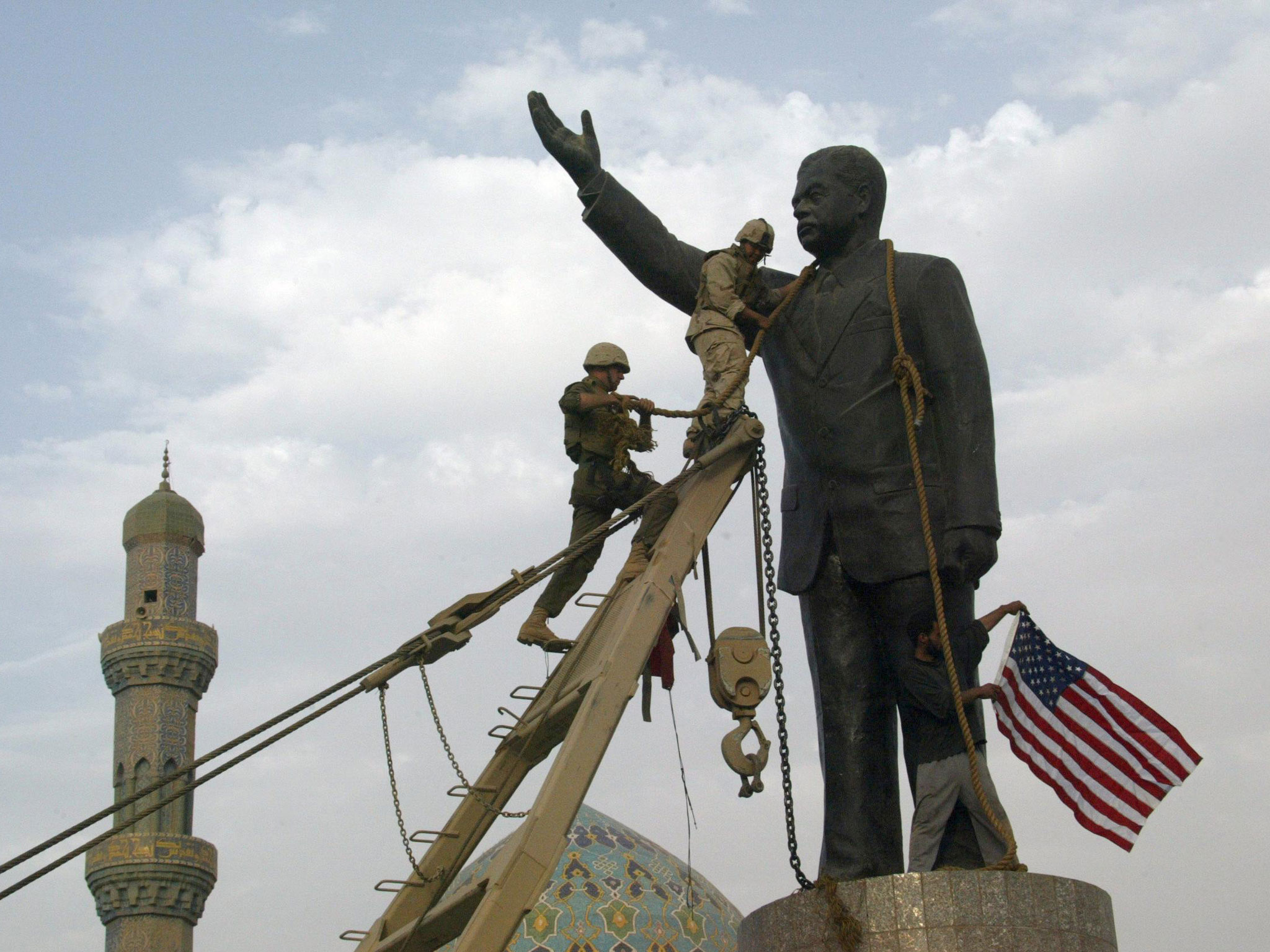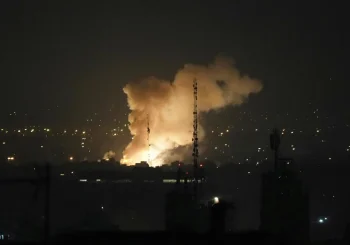What is the dominant power in today’s world? 20 years ago this question could have been answered with ease: The collapse of the Soviet Union left Russia in tatters while China still struggled with its economic development and Europe – as I might add with a slice of sarcasm – was now and then busy enough with itself. The US, on the other hand, had just emerged victorious from the Cold War and was able to establish control over many key countries of the Middle East, including Egypt, by means of military and financial aid.
Now which term fits this position best? My thesis shall be that this state of omnipresence and great control makes – or at least made – the US an empire like the Roman, British and Chinese empires that came before it.
What defines an empire?
To determine whether we can talk about the USA as an empire by definition depends of course of the definition applied, but these inevitably vary greatly. For German historian Herfried Münkler, an empire involves uncontested control over the largest share of the known world. Thus, for centuries, empires could exist alongside each other, like the Chinese and the Roman empires during the 4th century AD, being divided by large swathes of land and sea, making dominance over the other’s realm virtually impossible. This has changed in the globalized world: In a world so interlinked like ours the entire globe has literally become a village. Whether that started with the industrial revolution, the dominance of the British Empire or, more recently, with the emergence of the US Empire is arguable but in any case the situation we are facing remains the same.
An empire seeks to extend and maintain its control over its dominion by all available means, including diplomatic and military ones. Therefore, empires always spend a great deal of their resources on maintaining power infrastructure.
A history of executing influence – the basics of US policy
Now that we are equipped with a working definition, let us take a look at historic and contemporary aspects of US policy.
US policy nowadays is inevitably linked with wars and conflicts, especially the invasions of Afghanistan and Iraq in 2001 and 2003, respectively. In retrospect though, violent intervention had always been the last resort in US foreign policy. As was mentioned earlier, its classic means of establishing control consisted of a somewhat mafia-like tradeoff: Guaranteed security in exchange for handing over a certain degree of sovereignty to the US. As much as this kind of US policy is widely condemned nowadays, it was – and still is – very much welcomed by many of its partners. This tradeoff allowed European nations in particular to keep military spending relatively low during the entirety of the Cold War and way beyond that, allowing them to build the modern European social state that nowadays seems so attractive to many.
The situation in the Middle East slightly differed from that, especially because of the much broader variety of political, cultural and economic systems in the region compared to the relatively homogeneous Europe. While early US foreign policy could be described as anti-imperialistic – like during the Suez crisis where it crippled British and French imperial ambitions via the United Nations – it quickly changed into a political approach reflecting the reality of the US constituting an empire on its own.
Egypt
The greatest profiteer of US policy in Egypt, obviously, was the army: More than a billion dollars annually in military aid and modern equipment surely helped to cement the central position it had already held in the Egyptian state ever since the foundation of the Arab Republic.
Egypt, as the link between Asia and Africa and with the strategically significant importance of the Suez Canal, always played a vital part in the political considerations of the superpowers of the 20th and 21st century.
The United States, despite its often negative image in Egyptian public perception, mostly took a neutral to friendly stance towards Egypt. This stance notably began with the Suez crisis and culminating in the US-brokered peace treaty with Israel in 1978, which might be perceived by some as a move to cement the Israeli position in the region but nonetheless also brought great advantages to Egypt, both economically and militarily.
US foreign policy towards the Nile country has only recently been put to the test, when the US froze military aid for Egypt as a consequence of the toppling of Mohamed Morsi in 2013. Interestingly enough that didn’t lead to the Egyptian government giving in to the superpower’s demands but rather to it acquiring weapons from sources other than the US, like France and more noticeably Russia.
In 2015 the US unfroze the weapon deliveries to Egypt without its demands for a democratic restructuring being met, thus giving in to Al-Sisi and his government.
Rising Rivals
Another focus point in the decline of the US’ global ambitions is the rise of China, already one of the largest shareholders of US debt obligations globally, as an economical superpower, and the resurgence of Russia as a regional power, at the least.
Russia already successfully challenged US hegemony during the Ukraine crisis and the Syrian civil war, reestablishing its role as a global or at least regional power. Despite the worrying implications for the Russian economy that a large share of its GDP stems from the export of its natural ressources and not from technical innovation and industrial production, it nonetheless managed to reduce its debt/GDP ratio dramatically over the past two decades, activating resources for a more active foreign policy. The mutual visits between Egyptian and Russian representatives, up to the presidential level, give a nice hint towards the strategical importance of Egypt on the geopolitical level.
China, on the other hand, doesn’t catch as much attention on the politcal level as it does in the economical world, where it achieved a state of permanent growth, buying up large swathes of land in Africa to satisfy its growing demand for food. It so far hasn’t really challenged US authority directly and politically except for in its own regional power zone but its growing influence and self-confidence are draining valuable resources from other regions under predominantly American control.
The Downfall
There can be no doubt that the USA is still the dominant power of the contemporary world but signs of erosion on all corners of the empire are becoming too large to ignore: The ever-rising US debt, the emergence of new rivals and a world becoming more turbulent translate into increasing difficulty for the US to maintain control over its sphere of influence. The end of the empire, assuming it has ever been one, has probably not come yet but its control is fading as it becomes more and more occupied with internal struggles in the face of rising external threats to its hegemony.
And even though an empire has rarely ever won a competition for popularity and its downfall would be greeted with cheers by many, history has taught us that such a downfall usually comes at a great price for everyone.
Interestingly enough, the global situation mirrors the Egyptian situation in some ways here: The downfall of the old order can be desirable but the ensuing chaos and its consequences often are not.






Comments (0)